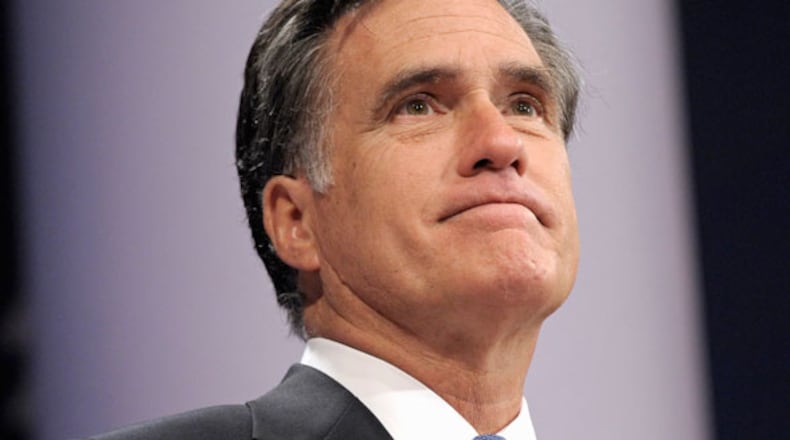Mitt Romney made the right decision -- for himself, his family, his party and his country.
In announcing his decision not to run for president in 2016, Romney claimed to still believe that he could again win the GOP nomination and then defeat Hillary Clinton in the general election. But if that were true -- or if he really believed that were true -- he would still be running.
In 2012, Romney had been the clear class of the Republican field, probably the only candidate in the bunch who would have been even plausible as a president. But his weaknesses as a candidate that year -- his Wall Street wealth, his patrician background, his difficulty in connecting with voters and his lack of authenticity -- would have posed even greater problems in 2016, a year in which issues of income inequity and an economically struggling middle class will dominate the discussion.
That was what these last few weeks have been about. A game Romney tried to trot out yet another version of himself, this time as an anti-poverty crusader, but it just didn't come across as credible. The chasm between that Romney 3.0 and "Mr. 47 Percent" was simply too large, and this decision is the consequence.
In the end, running for president is a matter of timing as much as it is talent or ability; the perfect candidate in one cycle might be out of sync with the times four years earlier or later. Bill Clinton, George W. Bush and Barack Obama were the right candidates for their times, a perfect meld of biography and character for that particular moment in history. Romney, who often came across as someone from another era entirely, never found that match.
In his announcement today, he appeared to recognize that fact.
"I’ve decided it is best to give other leaders in the party the opportunity to become our next nominee," he said. "... I believe that one of our next generation of Republican leaders, one who may not be as well known as I am today, one who has not yet taken their message across the country, one who is just getting started, may well emerge as being better able to defeat the Democrat nominee. In fact, I expect and hope that to be the case."
You could read that as a slam on the candidacy of Jeb Bush -- in fact, it's hard to interpret it otherwise. But Romney's right. We're seeing the rise of an ambitious new generation of leaders within the GOP, and while I disagree with most of the policies that those candidates espouse, you have to acknowledge that the party's 2016 field will boast more serious candidates than in any presidential cycle in a long, long time. Most will be making their debuts on the national stage, and as Romney says, it's probably true that a fresh face offers the GOP its best bet in what will be an uphill struggle against Hillary Clinton.
Still, Romney isn't at peace with his decision quite yet. As he said in today's announcement, "You can’t imagine how hard it is for Ann and me to step aside, especially knowing of your support and the support of so many people across the country." I'm not sure that's true.
One of the oddities about Romney is that while he generally held himself aloof, he also had a hard time hiding how he really felt about things. Bottled up in one way, his emotions came across in other, more awkward and indirect ways. You might say he was inauthentically authentic.
It takes a lot of ego to think that you are the best person in the world for the job of president, and Romney clearly felt that way and had a hard time hiding it. There's nothing wrong or dishonorable about it -- like being at least 35 years old, it's a basic qualification for the job. And no, it can't be easy to surrender a lifelong dream, the test that you've always measured yourself against, and allow others to pursue it.
But when reality intrudes, a wise man grudgingly accepts it.
About the Author
Keep Reading
The Latest
Featured


